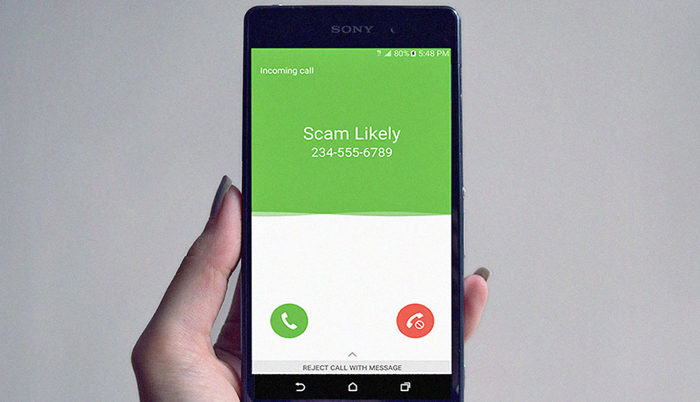Photo Courtesy of T-Mobile
Crooks are leveraging the pandemic to steal your money, your personal information, or both.
By Michael V. Cusenza
Perhaps unsurprisingly, the COVID-19 pandemic has given rise to phone and online scams. Crooks are leveraging the pandemic to steal your money, your personal information, or both.
The Federal Bureau of Investigation recently released a report on prolific virus-related scams—and tips on how to avoid them:
Fake CDC Emails:Watch out for emails claiming to be from the Centers for Disease Control and Prevention or other organizations claiming to offer information on the virus. Do not click links or open attachments you do not recognize. Fraudsters can use links in emails to deliver malware to your computer to steal personal information or to lock your computer and demand payment. Be wary of websites and apps claiming to track COVID-19 cases worldwide. Criminals are using malicious websites to infect and lock devices until payment is received.
Phishing Emails:Look out for phishing emails asking you to verify your personal information in order to receive an economic stimulus check from the government. While talk of economic stimulus checks has been in the news cycle, government agencies are not sending unsolicited emails seeking your private information in order to send you money. Phishing emails may also claim to be related to: charitable contributions; general financial relief; airline carrier refunds; fake cures and vaccines; or fake testing kits.
Counterfeit Treatments or Equipment:Be cautious of anyone selling products that claim to prevent, treat, diagnose, or cure COVID-19. Be alert to counterfeit products such as sanitizing products and Personal Protective Equipment, including N95 respirator masks, goggles, full face shields, protective gowns, and gloves. More information on unapproved or counterfeit PPE can be found at cdc.gov/niosh. You can also find information on the U.S. Food and Drug Administration website, fda.gov, and the Environmental Protection Agency website, epa.gov. Report counterfeit products at ic3.gov and to the National Intellectual Property Rights Coordination Center at iprcenter.gov.
If you are looking for accurate and up-to-date information on COVID-19, the CDC has posted extensive guidance and information that is updated frequently. The best sources for authoritative information on COVID-19 are cdc.gov and coronavirus.gov. You may also consult your primary care physician for guidance, the FBI noted.
Other popular scams are known as “Family Scams.” According to the online dating investigation service SocialCatfish.com, grandparent and family scams often occur at night and target older adults. You will answer your phone and hear someone saying, “Grandma” or “Grandpa.”
They’ll say that they’ve contracted the virus and are homebound and in quarantine. They will ask you to send them a gift card online, immediately, so they can buy delivery food or supplies. You’ll be upset and do so, without thinking twice. The caller will actually be a scammer and keep your money.
To avoid this scam, always check your caller ID to make sure it is actually your loved one calling you. If you feel like scammers are masking the caller ID to make it seem like it’s your loved one, call them back on their trusted phone number to verify it’s them. Don’t ever send money over the phone, even if it is someone you think you trust; always give it to them in person.

